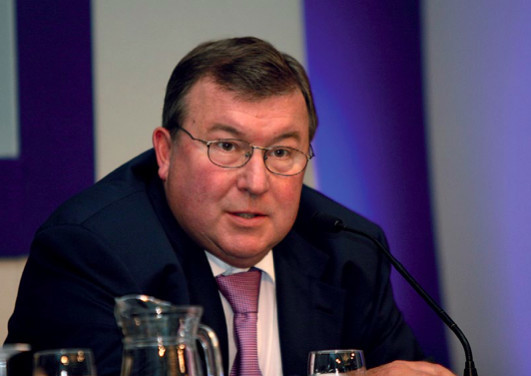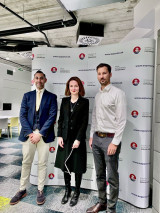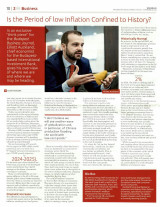Interview of the Chairman of the Board of the IIB Nikolay Kosov for RBCC Bulletin

Mr Kosov, first of all, tell us about yourself. You began your career as a diplomat at a difficult time for international relations. What do you remember most of that period?
I was interested in international events from a young age. Even when I was at school I always volunteered to do the politi- cal information bulletin for my classmates. At the start of the 1970s I enrolled at the Institute for International Relations, where the English course appealed right away.
My first diplomatic assignment was to Dublin, Ireland. This was in the late 70's and early 80's — an interesting few years. I lived in Ireland with my family for almost five years, during which time the troubles in Ulster were getting worse. People in Ireland were reacting strongly and very badly to all of it. But despite everything, the Irish are wonderful people. They are very similar to Russians in many ways — for example,
they definitely know how to have a good time, sometimes too good.
During this posting I learnt a lot about the way that Western governments were integrating and developing. Ireland, at this time, was slowly but surely entering the single market, from which the EU later formed.
I then spent a short while in Moscow at the Ministry of Foreign Affairs before a long assignment of almost seven years in London. I started there as a Second Secretary and, after three years, became Adviser for International and Political Affairs.
This was perhaps the best period in mine and my family’s lives. England is a very interesting country, and the English are clever, enlightened people with a good sense of humour. And, of course, at this point perestroika began in the USSR. People understood that times were changing, the empire was collapsing. There was a serious desire to move forward and people began to plan for the future. Many of their hopes were fulfilled, and many weren’t. It was an interesting time indeed. There were many new things to read and learn about. People could reach their own conclusions, express their own views.
It was also during my time in London that I had the hon- our of meeting Margaret Thatcher, who was Prime Minister at the time. My work at the Embassy introduced me to her inner circle, in the first instance this was Charles Powell, who advised her on foreign affairs. I got on with him very well. On several occasions I accompanied the Ambassador — at the time it was Leonid Petrovich Zamyatin — to meetings with Mrs Thatcher, I was even given the job of translating her conversations with Mikhail Gorbachev. This all impressed on me greatly — first-hand experience of a powerful political figure, who changed both the external and domestic character of her country in many ways.


